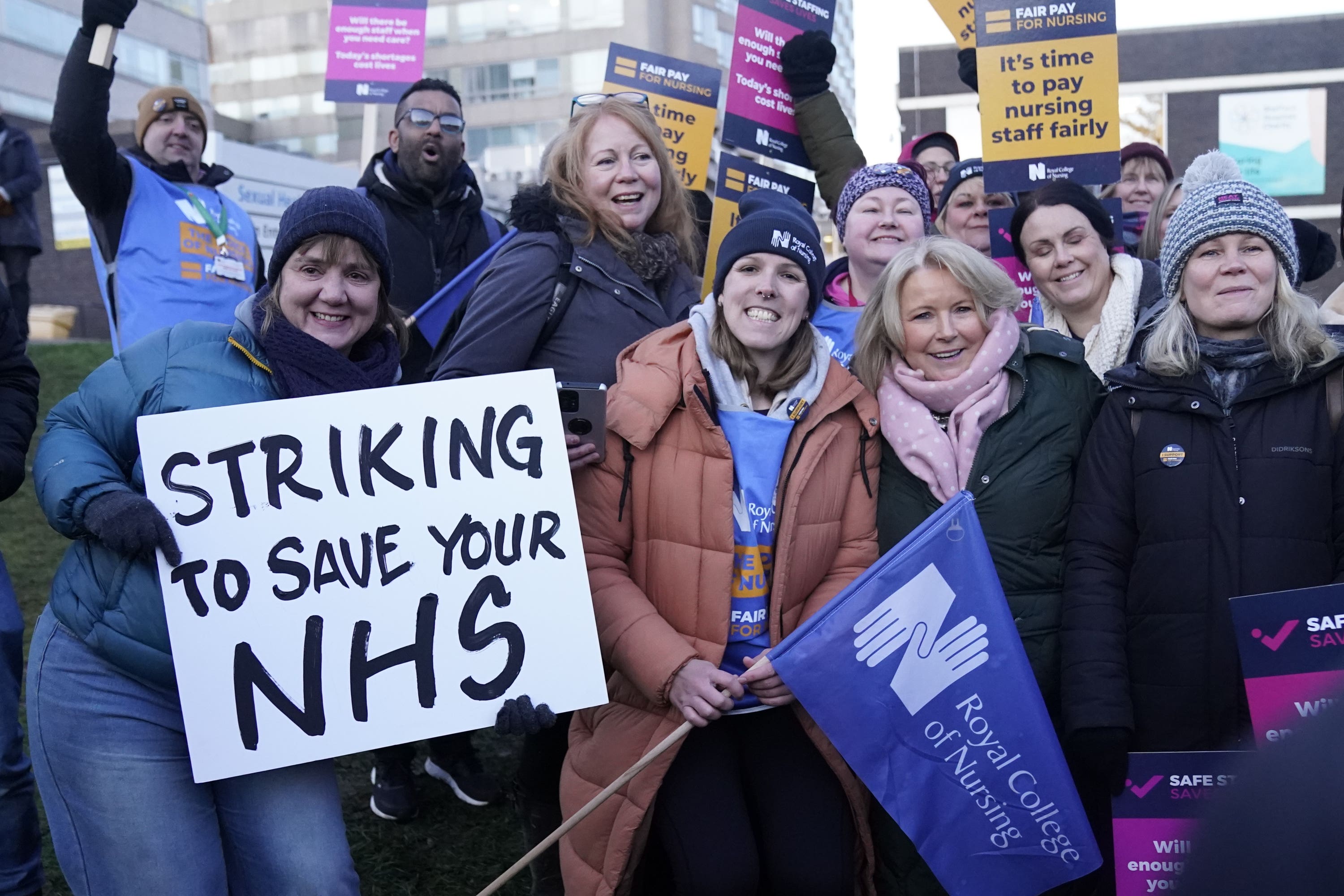Your support helps us to tell the story
From reproductive rights to climate change to Big Tech, The Independent is on the ground when the story is developing. Whether it's investigating the financials of Elon Musk's pro-Trump PAC or producing our latest documentary, 'The A Word', which shines a light on the American women fighting for reproductive rights, we know how important it is to parse out the facts from the messaging.
At such a critical moment in US history, we need reporters on the ground. Your donation allows us to keep sending journalists to speak to both sides of the story.
The Independent is trusted by Americans across the entire political spectrum. And unlike many other quality news outlets, we choose not to lock Americans out of our reporting and analysis with paywalls. We believe quality journalism should be available to everyone, paid for by those who can afford it.
Your support makes all the difference.Nurses have announced a significant escalation in strike action in the increasingly bitter dispute over pay and staffing, with intensive care and cancer care workers set to join a 48-hour walkout.
The Royal College of Nursing (RCN), which accused the government of refusing to engage in negotiations, also said it will increase financial support for its members who lose wages by taking industrial action.
The next strike will run continuously for 48 hours from 6am on 1 March and will hit more than 120 NHS employers in England. Previous action took place only during the day shift, for 12 hours each time.
For the first time, the RCN will involve nursing staff working in emergency departments, intensive care units, cancer care and other services that were previously exempted.
A strike last week saw the RCN agree 5,000 exemptions at local level through committees of NHS hospitals and RCN staff, but this process will be stopped for the March dates.

The RCN said it was continuing discussions with the NHS at national level as part of its commitment to “life and limb” care.
It will reduce services to an “absolute minimum” and ask hospitals to rely on members of other unions and other clinical professions instead.
The nursing union announced that the initial strike benefit rate will be increased from £50 to £80 per day, with the rate increasing to £120 from the fourth day of action.
RCN general secretary Pat Cullen, said: “It is with a heavy heart that I have today asked even more nursing staff to join this dispute.
“These strikes will not just run for longer and involve more people but will leave no area of the NHS unaffected. Patients and nurses alike did not want this to happen.

“By refusing to negotiate with nurses, the Prime Minister is pushing even more people into the strike. He must listen to NHS leaders and not let this go ahead.
“I will do whatever I can to ensure patient safety is protected.
“At first, we asked thousands to keep working during the strikes but it is clear that is only prolonging the dispute.
“This action must not be in vain – the prime minister owes them an answer.”
Health secretary Steve Barclay said: “Failure to provide cover during strike action for key services like cancer care is a significant escalation from the Royal College of Nursing that will risk patient safety.
“We are working closely with NHS England on contingency plans, but this action will inevitably cause further disruption for patients.
“I’ve had a series of discussions with unions, including the RCN, about what is fair and affordable for the coming year, as well as wider concerns around conditions and workload.”



Join our commenting forum
Join thought-provoking conversations, follow other Independent readers and see their replies
Comments